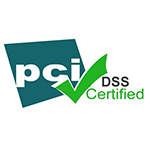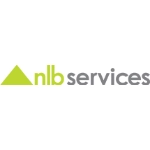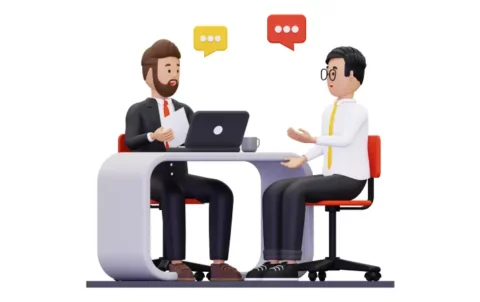© 2025 Next Level Business Services Inc. All Rights Reserved.
The importance of soft skills in the workplace
By NLB Services
Whether you’re looking to widen your professional horizons, hire a new employee, or are thinking of making friends at the workplace, understanding the importance of soft skills is crucial. It creates a positive and productive working environment and increases connection.
Soft skills are linked to emotional intelligence and other skills such as communication and listening, conflict resolution, positive relationships, cooperation, collaboration, creativity, civility, and openness to gelling with people.
In this article, we will outline some important soft skills in the workplace that will help you blend with the team and will be useful in the longer run and also how communication is important in the workplace.
Examples of Soft Skills
Communication skills in the workplace
There are several types of communication. Communication skills can be broadly categorized into written or verbal. Employees with strong written communication skills understand how to craft formal emails and follow proper messaging etiquette on professional platforms like Slack, Asana, or Microsoft Teams.
On the other hand, verbal communication includes meetings, presentations, and networking. It’s important to note that whether you work from home or the office, speaking with coworkers or clients can be done in various ways. A little bit of effort into learning their languages can make your collaborations go a long way in strengthening your professional relationships.
Teamwork and collaboration
Being an effective team player can sometimes mean rethinking one’s approach towards specific tasks or assignments’ completion, teamwork is very important in creating a pleasant workplace environment so that other employees can learn new hard and soft skills from fellow team members. Without teamwork, tasks become difficult to complete when logistical or practical issues arise. It is with teamwork, projects can be accomplished easily and swiftly as the tasks are segregated.
Problem-solving and critical thinking
Hiring managers and recruiters often screen candidates for their problem-solving skills. Sometimes along with effective communication at work is the primary skill that they seek for alongwith, problem-solving skills. Both skills are judged during the interview while providing a situational question to the candidate. Some recruiters also judge the candidate for the ability if they can work in a collaborative environment. Commonly referred to as ‘troubleshooting,’ critical thinking refers to anticipating and resolving problems. Employers think employees can resolve problems while taking the initiative rather than waiting for colleagues to devise a solution. Being a problem solver boosts and encourages efficiency in the workplace.
Adaptability and flexibility
Adaptability to new challenges and flexibility to learn new skills can take a person to the next level. Hence soft skills at the workplace are also inclusive of adaptability to new challenges for new projects and the flexibility to learn new things.
Leadership and management
Some hiring managers look for candidates with experience in coaching coworkers. Soft skills indicate knowledge of communication techniques and lay the foundation for effective teamwork.
Successful leadership commonly encompasses high soft skills that enable leaders to motivate and inspire their teammates. Other than that, the ability to lead successfully often depends on a leader’s ability to strategize on any project, listen to feedback, take ideas and suggestions, and incorporate their team’s ideas and contributions. For the successful implementation of projects, strong workplace communication is very important among teammates.
Time management and organization
Time management often leads to the proper use of time to achieve the company’s goals and is one of the most important soft skills at the workplace. Productive work will only be found when the person knows how to prioritize, plan and deliver results timely. Other sub-skills (stress management, planning, goal setting) in time management have to be borne by the individual simultaneously.
Benefits of Soft Skills in the Workplace
Improved communication and collaboration
Soft skills have a great impact on your productivity and professional accomplishments. Effective communication at work helps candidates to pace up their work and enhances the team’s efficiency. Most recruiters check the candidate’s range of soft skills as expertise in different domains works for the organization’s benefit. Companies also prefer and give a note to the recruiters beforehand as communication is important in the workplace.
Increased productivity and efficiency
Building healthy professional relationships helps you go a long way. Healthy communication at work with team members, shareholders, clients, or business partners, greatly impacts how the people are associated with the company and what values they bring. Out of all soft skills, empathy is one of crucial importance. It helps to build sustainable workplace relationships and builds productivity and efficiency.
Better customer service
One of the most direct benefits of soft skills in the workplace is the spike in customer satisfaction. Customer-facing jobs require employees to actively listen to consumers’ needs, and identify and solve problems immediately. In a customer-facing profile, employees have to greet everyone with compassion and empathy. For example, when a customer calls in with product issues, the call center employee patiently listens to the complaint and then asks targeted questions to clarify the problem. During the conversation, the employee stays calm and collected even if the customer becomes agitated. Therefore, soft skills have their own benefits in customer-facing jobs.
Higher employee morale and job satisfaction
Soft skills training not only helps to build customer satisfaction well but also makes the employee more confident in their role. Some companies give soft-skills training and classes that help to build trust with one another. It builds confidence among them and makes them more confident in their role and stay for longer.
Stronger leadership and management
Employees become a cohesive unit when they interact with each other. With soft-skills training, they’re able to collaborate and respect each other’s perspectives.
Improved decision-making and problem-solving
Soft skills training or workplace communication training can bring together staff members in different departments with differing opinions and work styles. It moves them towards common goals. As a result, teams can run more efficiently and productively with improved output.
How to Develop Soft Skills
Several European firms are employing ‘stepping stone’ initiatives to build a digital platform to help workers evaluate their soft skills, know their strengths and development needs, access specific training, and get certified. Effective soft skilling requires blended learning journeys which is a mix of traditional learning, and online/digital courses and job aids, with non-traditional methods, such as per-head coaching. Employers who provide soft skills training are reported to be having positive impacts on their workforce, including higher productivity and improved results. As today for business longevity, training in soft skills is paramount. That is how organizations can enhance the chances of a their development with soft-skilled people.
Identifying areas for improvement
The first step in soft skills development is to recognize and acknowledge the areas that need to be improved. It can take place through personal reflection and introspection.
Seeking feedback and mentoring
After you’ve gained an awareness of your strengths and weaknesses, and areas to be improved, create a plan of action that needs to be improved and seek feedback from peers and mentors who can help to enhance your soft skills. Soft skills encompass a relatively large category, so depending on the areas you need to improve you shall take help from your mentors. Consider working with a mentor who can provide feedback and demonstrate appropriate skills.
Participating in training and development programs
Soft skills can influence the way you work. For impactful work throughout the tenure, participate in the training and development programs that help you to give an effective presentation, and communicate your point effectively in front of others.
Practicing and applying skills in everyday work situations
Soft skills can enhance your presentation abilities and you can communicate your points effectively. Learn from your mentors and practice and apply the skills in your day-to-day activities and everyday work situations. They will increase your chances to perform a job with precision and you will have an improved style of work every time you work.
Soft Skills vs. Hard Skills
| Hard Skills | Soft Skills |
|---|---|
| Bilingual or multilingual | Integrity |
| Database management | Dependability |
| Adobe software suite | Effective communication |
| Network security | Open-mindedness |
| SEO/SEM marketing | Teamwork |
| Statistical analysis | Creativity |
| Data mining | Problem-solving |
| Mobile development | Critical thinking |
| User interface design | Adaptability |
| Marketing campaign management | Organization |
| Storage systems and management | Willingness to learn |
| Programming languages (such as Perl, Python, Java, and Ruby) |
Empathy |
| Hard skills are technical knowledge or training that you have gained through any life experience, including in your career or education. | Soft skills are personal habits and traits that shape how you work, on your own and with others. |
Hard skills and soft skills are categorized under the criteria mentioned above.
Apart from that, the basic differences between these two can be categorized as:
The key differences between hard skills and soft skills are how they are gained and put to use in the workplace.
Hard skills
Hard skills are gained through education or specific training. It includes competencies like how to use or operate a machine, install software, or use any tool.
Soft Skills
Soft skills are often seen as personality traits that a person develops during his/her entire life. These are recorded based on how you manage your time, communicate with other people, or confront a difficult situation for the first time.
While every job will require certain technical skills specific to that industry, hard skills are tech-based skills that a person should possess, whereas soft skills can take you miles ahead and depict parts of your personality largely.
Conclusion
It’s obvious why soft skills are supremely getting ahead in the workplace and the importance of soft skills in the workplace is getting recognized. Having sound soft skills can give you a professional edge to open up with your colleagues and shine in the workplace. It is true across all industries. Now that you know what soft skills are and how they can help you advance in the workplace, start improving them. Mentioning and showcasing the right abilities during the interview process helps to capture the employer’s attention. When a candidate possesses the right soft skills, it differentiates them from other candidates having the same skill set.
Employers prefer hiring people who possess a mastery of certain soft skills. Having employees with strong communication skills becomes an aid in problem-solving, and critical thinking as they talk effectively. This ultimately decreases the cost of doing business because these employees are efficient.
Talent Solutions








